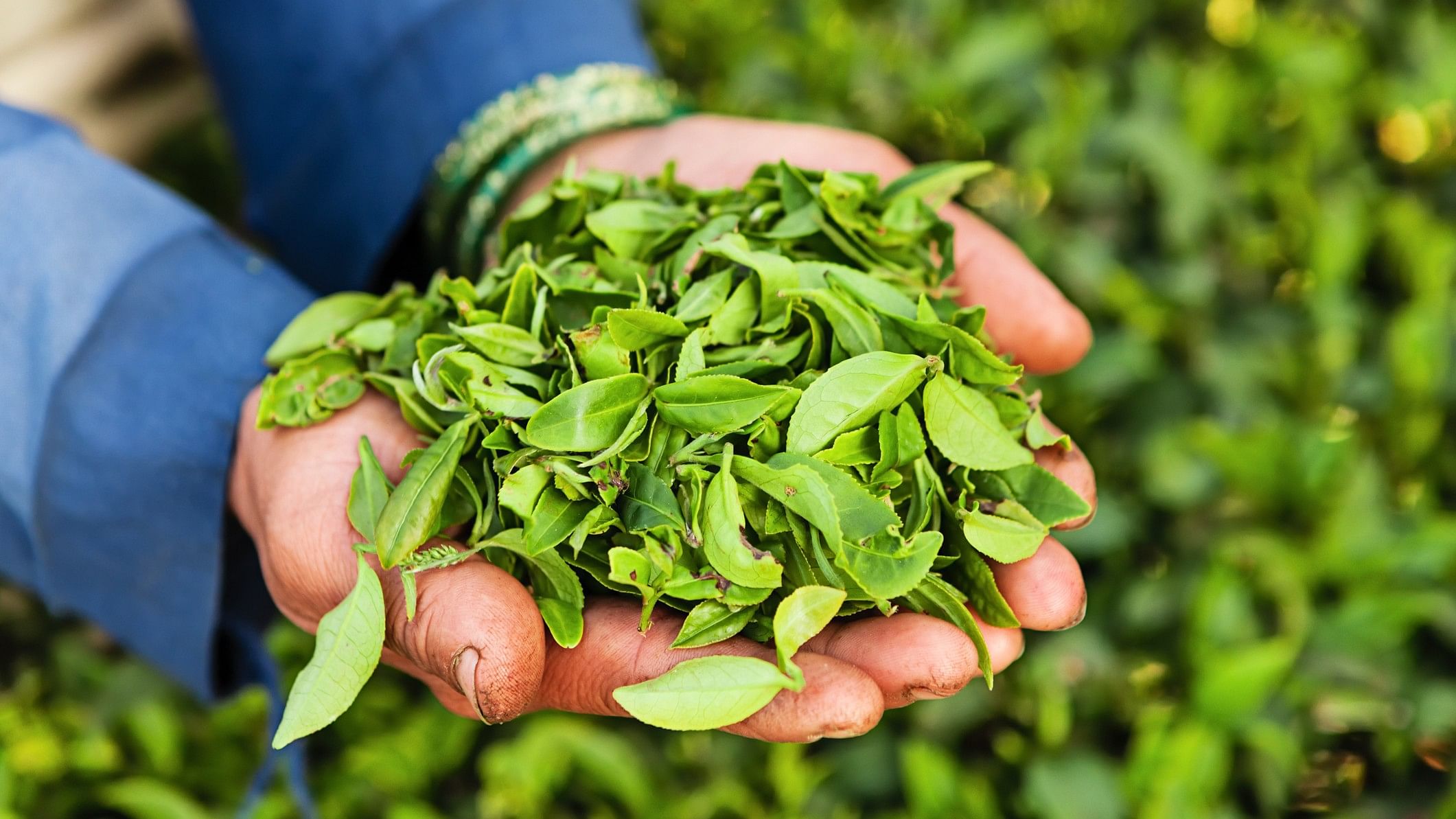
Women workers show plucked tea leaves in Darjeeling, West Bengal
Credit: iStock Photo
Kolkata: Union Commerce & Industry Minister Piyush Goyal on Saturday okayed proposals to increase the number of laboratories for stringent and frequent tea testing for both domestic and foreign-imported tea leaves.
Goyal held a meeting of stakeholders of tea and jute industries here and attempted to resolve their concerns.
The minister gave the go-ahead to set up more labs for stringent and frequent tea testing for both domestic and foreign-imported tea leaves by the Food Safety and Standards Authority of India (FSSAI), sources present at the meeting said.
They said that the move to raise labs is aimed at reducing the indiscriminate use of pesticides, which has been a major concern for the industry, particularly in exports.
The industry has welcomed this move, stating that lower production is beneficial as it will help fetch better prices.
Addressing concerns about indiscriminate imports, the minister listened to tea companies who were seeking some checks on tea imports from Nepal and Sri Lanka.
Given the trade support offered to neighbouring countries, the minister said the government seeks to strike a balance to protect the domestic industry, as tea is a key agricultural produce in a few states and a forex earner, according to the sources.
The industry and the government will deliberate on how to check indiscriminate imports, and allowing only packet tea could be one of the options to be considered, sources said.
The government is open to privatise tea auctions if capacity building in the Bharat Auction system, the minister stated. He also formed a committee from the industry to explore if capacity building can be done and a review of the auction platform will take place in July.
Another decision taken at the meeting was going for mandatory auction of 100 per cent of tea dust for three months. Tea dust constitutes 10-15 per cent of production.
Tea players stated that these changes are expected to have a significant impact on the tea industry, and it remains to be seen how they will be implemented and received by the industry.
Both the jute and tea sector stakeholders were pleased after the meeting and even referred to the minister as 'Santa Claus”.
Meanwhile, the Confederations of Indian Small Tea Growers Associations (CISTA) submitted a memorandum to the minister listing its demands.
CISTA’s charter of demands includes a central government policy for fair and remunerative prices of green tea leaves and a dedicated fund for small tea growers for field-based training, and climate smart cultivation for improving quality and productivity.